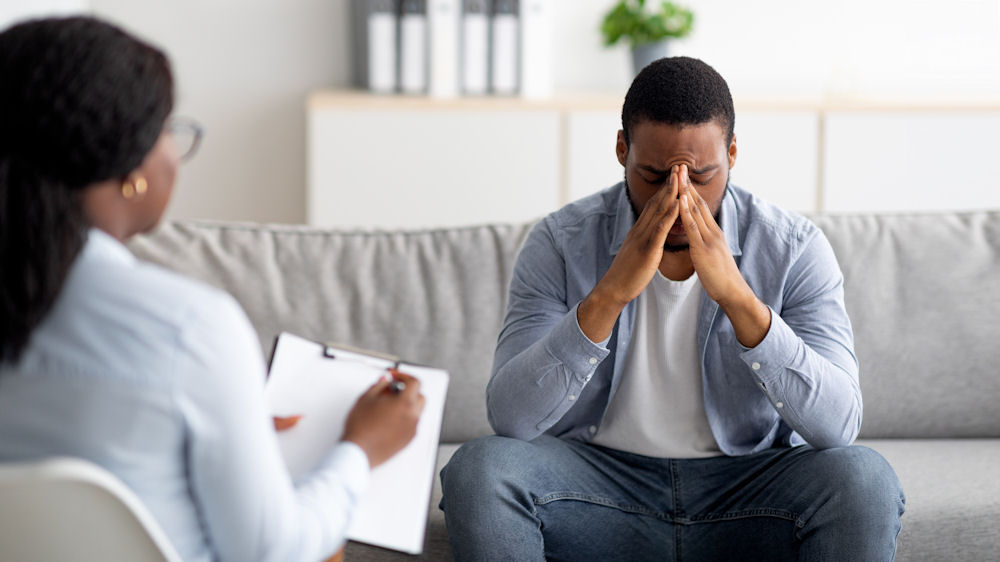The holiday season is packed with celebrations, family gatherings, and ample opportunity to set your inhibitions aside and cut loose. But when the festivities end, some of those happy moments can leave behind a set of triggers that make it harder to maintain your sobriety. Post-holiday addiction triggers can come in many forms, from stress and emotional overwhelm to being around people who may be indulging in drinking alcohol. It’s completely normal to feel a little unsteady after the whirlwind of December, but there are ways to regain your balance and stay on track with your recovery.
Navigating the area between holiday fun and post-holiday realities requires a mix of self-awareness, preparation, and support. With the right strategies, you can manage those triggers and stay grounded without falling into old habits. In this blog, we’ll explore practical tips to help you cope with the post-holiday blues while also keeping your recovery journey strong. No matter if you’re facing emotional triggers, social pressures, or a lack of routine, we’ve got some ideas to help you stay focused and feel empowered moving forward.
What Is The Holiday Syndrome?
The Holiday Syndrome is that weird mix of emotions that can hit when the festive season rolls around. There’s the excitement of twinkling lights, good food, cozy gatherings, and maybe even some time off, but it can also mean stress, loneliness, or pressure to make everything perfect. You may miss loved ones, feel overwhelmed by expectations, or find balancing work, family, and social events chaotic and challenging. It’s normal to feel this way, and recognizing it can help you navigate the season with a little more grace and self-care.


Why Are Holidays Hard For Addicts?
Holidays are hard for addicts because they pose a test of willpower, especially if you’re surrounded by people who don’t understand your journey. Loneliness can creep in, too, if you’re avoiding certain events or people to protect your sobriety. Combine this with the emotional weight of the season and it becomes a lot to navigate. For someone working hard to stay sober, the holidays can feel less like a celebration and more like a challenge.
What Are The Hidden Triggers Lurking Post-Holidays?
The holiday hype can leave behind some sneaky triggers that might catch you off guard once things settle down. These hidden stressors can creep up on you, making it hard to fully get back to your routine. Here’s a list of some of several post-holiday triggers you might not expect:
- Social Burnout: All those social gatherings and family dinners were fun, but now your energy feels drained.
- Expectation Hangover: Once the decorations are down, it’s easy to feel like the weight of unmet goals or expectations is suddenly much heavier.
- Financial Stress: It’s easy to overspend during the holiday season, and the financial hangover can sneak up, bringing anxiety and worry about your next paycheck or savings.
- Post-Travel Fatigue: If you’ve been hopping from place to place or spending hours on flights or road trips, the exhaustion from traveling can linger long after you’ve returned home.
- Nostalgia Blues: The absence of the excitement or the people you’ve spent time with can leave you feeling a little off.
- Food Coma: Once the feasting ends, you might feel sluggish or even guilty, which can impact your mood and energy levels in unexpected ways.
- Shift in Routine: After all the festive chaos, the sudden change might throw off your productivity or your sense of structure, creating a subtle sense of disorientation.
- Seasonal Blues: The seasonal shift can leave some people feeling down or a little lost as the world transitions into the quiet post-holiday months.
How Do Post-Holiday Blues Compare With Seasonal Affective Disorder?
The post-holiday blues and Seasonal Affective Disorder (SAD) can feel pretty similar, but there are some important differences to be aware of. Both can leave you feeling down, but the causes and long-term effects are different. Here’s a breakdown of how they compare:
- The feeling of Emptiness: Both can bring on a sense of emptiness after the high of the holidays.
- Low Energy: Fatigue, sluggishness, and a lack of motivation can hit with both the post-holiday blues and SAD.
- Mood Swings: Both can cause mood dips, sadness, irritability, and feeling detached from the world around you.
- Social Withdrawal: The holidays may have left you feeling emotionally drained, and with SAD, the winter months can make you crave isolation.
- Duration: Post-holiday blues tend to be short-lived, often fading within a couple of weeks after the new year. SAD, however, is a recurring condition that typically lasts through the fall and winter months, sometimes until spring.
- Triggering Events: The post-holiday slump is usually linked to the sudden shift after all the excitement ends. SAD is often linked to the lack of sunlight in winter months, which can affect your sleep, mood, and energy levels.
- Physical Symptoms: SAD tends to come with more noticeable physical symptoms, like changes in appetite (usually craving carbs or overeating), sleep disturbances (either oversleeping or insomnia), and weight gain. The post-holiday blues may not involve these symptoms as strongly.
- Intensity: While the post-holiday blues can feel heavy for a week or two, they usually aren’t severe or chronic. SAD, on the other hand, can cause long-term emotional and physical challenges, making it harder to get through everyday tasks.

When Are Post-Holiday Blues Considered Serious?
Post-holiday blues are usually temporary, but there are times when they can start to feel more intense or linger for much longer than expected. If you’re wondering when it might be time to pay extra attention, here are a few signs that the blues could be more serious:
- Persistent Low Mood: If your feelings of sadness or emptiness persist longer than a couple of weeks or worsen, it might be a sign that something deeper is going on.
- Loss of Interest in Activities: If, after the holidays, you find yourself losing interest in hobbies and activities you usually enjoy, it could be a sign of something more serious, like depression.
- Trouble with Daily Tasks: When post-holiday blues affect your ability to get through everyday activities, like work, school, or even basic self-care, it might be time to get help.
- Physical Symptoms: If you’re feeling physically drained, having trouble sleeping, or experiencing changes in appetite that last longer than a few weeks, this could indicate that your body is struggling more than expected.
- Isolation: Feeling like withdrawing from friends or family can be a normal part of the post-holiday slump, but if you find yourself avoiding people you care about for weeks and struggling to connect, your emotional well-being needs attention.
- Increased Anxiety: Anxiety that doesn’t subside, especially when it lingers well past the holidays, could be related to more than just post-holiday stress.
- Thoughts of Hopelessness: If you start thinking that things won’t get better or feel hopeless about the future, it’s time to reach out for support. These types of thoughts are serious and deserve professional attention to help you process them.
How Can I Manage Post-Holiday Alcohol Triggers?
Managing post-holiday alcohol triggers can feel like a chore (and who likes chores?), especially after all the celebrations and parties. But with a little awareness and planning, you can navigate those moments without slipping into old habits. Here’s how to take control and set yourself up for success:
- Identify the Triggers: Knowing what sets off the craving for a drink inside you can help you avoid those situations or find healthier alternatives.
- Set Clear Boundaries: Set personal boundaries for yourself. Having set rules in place makes it easier to stick to your goals.
- Find Alcohol-Free Alternatives: Instead of feeling left out, find fun, non-alcoholic alternatives like mocktails or flavored sparkling water which can satisfy the need for a fizzy drink without the buzz.
- Revisit Your Social Plans: Consider shifting your focus to social activities that don’t revolve around drinking, like going for coffee, hitting up a workout class, or planning a movie night with friends.
- Practice Saying No: Be prepared with a simple, firm “no, thanks,” or offer an alternative, like “I’m good with my water tonight.” You don’t owe anyone an explanation, and you don’t have to drink to fit in.
- Reframe Your Relationship With Alcohol: Start to shift the mindset of “holidays = celebration/ drinking” to one that allows for celebrating without alcohol.
- Check-in With Yourself: If you’re feeling overwhelmed, focus on self-care practices that help you relax (like journaling, meditating, or going for a jog) before reaching for a drink.
- Seek Support: If managing post-holiday alcohol triggers feels like too much to handle alone, reach out to friends, family, or even a support group.

Northern Illinois Recovery Can Help You Cope With Post-Holiday Blues
The post-holiday slump is real. The parties are over, the decorations come down, friends and loved ones go back to their lives, and suddenly life feels a little quieter (and maybe a little heavier). On the topic of drug and alcohol intake during the holidays, Northern Illinois Recovery Center’s Clinical Director, Dr. Caitlyn McClure, DSW, LCSW said on Mary Kaye’s Positivity Podcast, “The fact that people recognize that they’re struggling is the first step.” If you’re hard-pressed to shake off the blues, Northern Illinois Recovery in Crystal Lake, Illinois is here to help you find your footing again.
Our team understands that the holidays can leave you emotionally drained, especially if you’re dealing with mental health challenges or working through recovery. That’s why we offer support tailored to your needs, from treatment programs to therapy services that remind you you’re not alone. We will help you process those post-holiday feelings as you move on with the rest of your year.
With our guidance, you can turn this time into an opportunity to reset, refocus, and recharge. Northern Illinois Recovery is all about helping you build resilience and find joy, even after the tinsel’s been packed away. So, if the post-holiday blues are hitting hard, contact us today – we’ve got your back.




